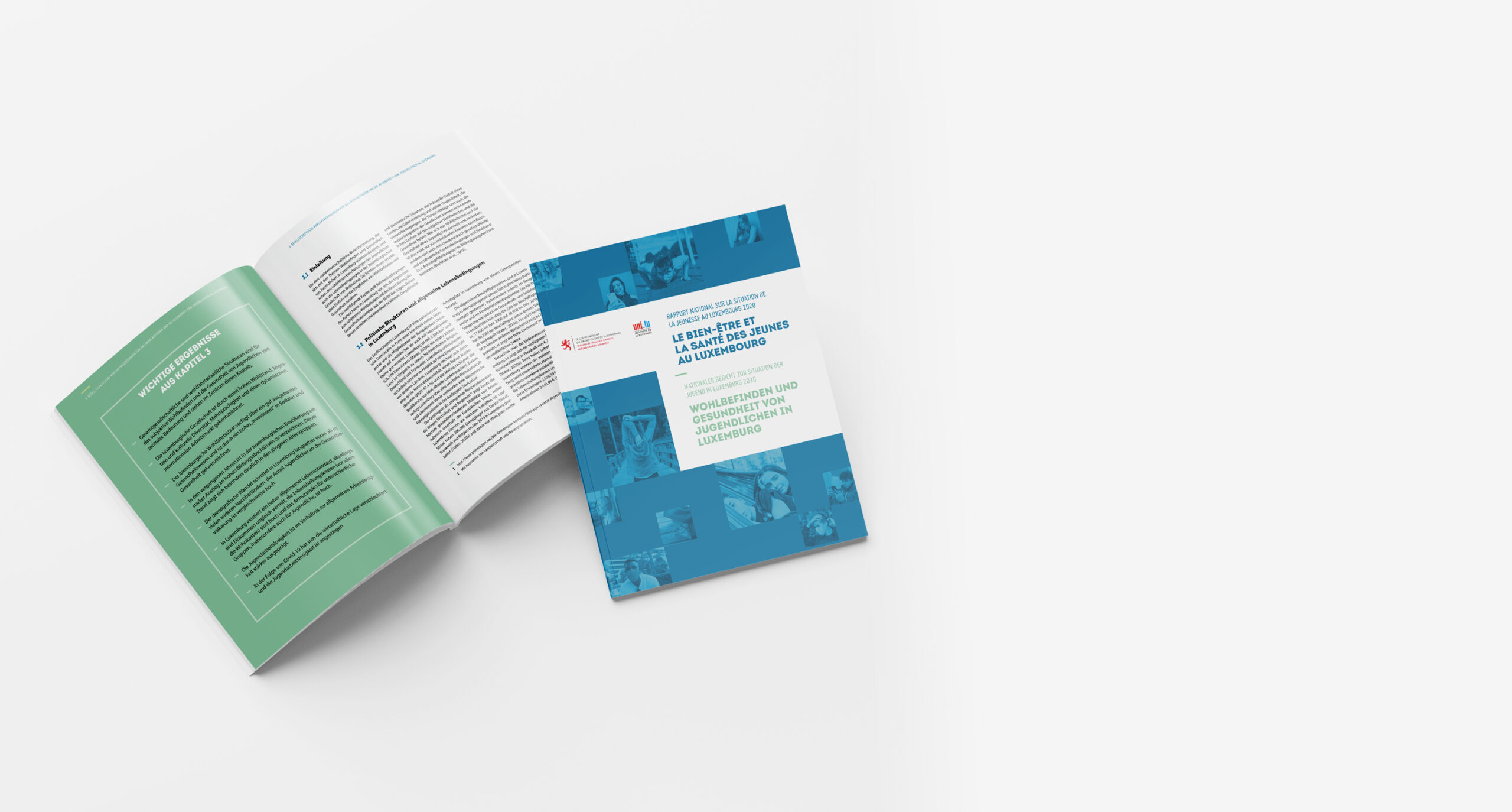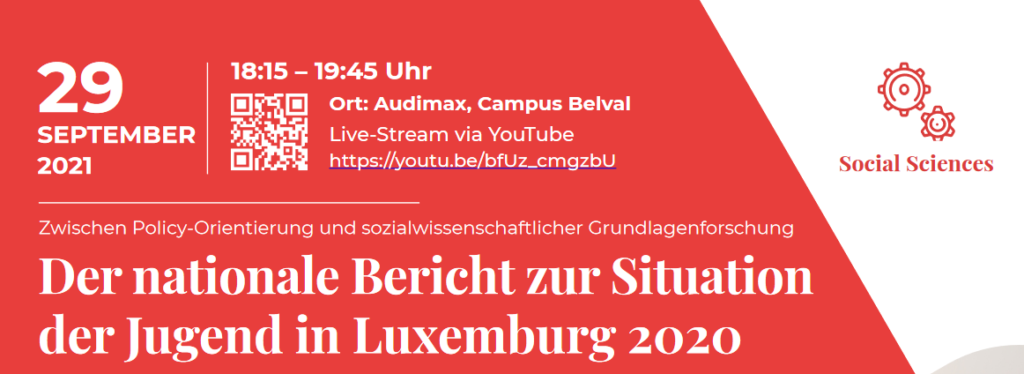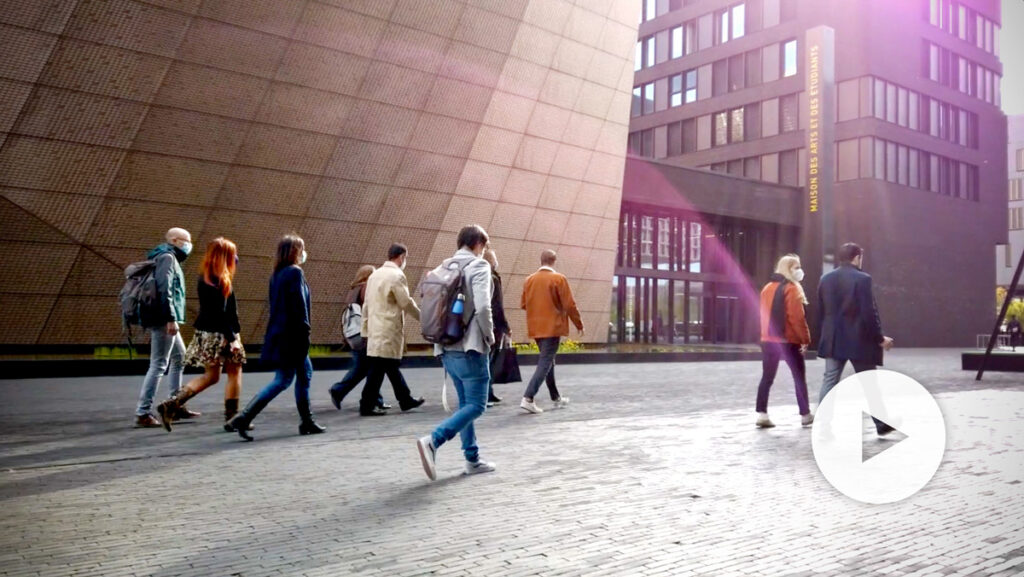The University of Luxembourg presents the Youth Report ...
Presentation evening on the value of long-term data collection
Well-being and health of young people are the thematic focus of the third Luxembourg Youth Report. For a presentation of the results, the University of Luxembourg opened its doors on September 29. The presentation evening clearly showed that basic research and applied research cross-fertilize and inspire each other. The Youth Report 2020 has made an important contribution to this. Read our summary here!
Minister Claude Meisch about the Youth Report 2020
In a video address, Claude Meisch, Minister of Education, Children and Youth, underlines that findings on the well-being and the health of young people are an important indicator for youth policy. The Youth Report 2020 is intended to be an evidence base for the upcoming discussions on the national youth action plan.
This is what we found out
About this Youth Report
The findings of youth research and of the present youth report serve as an important source of information on the needs and problems of young people and young adults in Luxembourg. The Youth Report sees itself as the voice of the young people, as it focuses on their subjective perspective.
Concept
Concept of the Youth Report

- Subjective well-being
- Subjective health assessment
- Action oriented towards one's well-being
- Health-related action
- Health-related quality of life
- Social science research
- Personal factors
- Social factors
- Structural factors
- Capability approach
- Concept of agency
- Self-efficacy
- Social networks
- Resilience
- Patterns of action
- Personality development
- Enabling spaces
- Participation
- Empowerment
Context
Social context for the well-being and health of young people in Luxembourg

Social security
Educational opportunities
Protection of young people
Social integration
Migration
Living conditions
Security situation
Policy framework
Environmental conditions
Social inequality
Demography
Youth unemployment

Self-evaluations
How young people evaluate their well-being and health
Subjective health perceptions


Performance pressure
Comfort
Stress
Overweight
Underweight
Self-care
Support
Bullying
Psychological well-being
Drug addiction
Acknowledgement
Psychosomatic problems
Chronic diseases
Personal responsibility
Depression
Life satisfaction
Subjective well-being
Behaviour
What young people do or don't do for their well-being and health


Motives for behaviour
- Increased well-being
- Self-optimisation
- Dissatisfaction
- Protection of the environment
- Stress
- Role models
Motives for media consumption
- Self-actualisation
- Entertainment
- Keeping in touch with contacts
- Relaxation
- Positive Emotions
The difference between knowing and acting
- Cognitive dissonance
- Relativisation
- Good resolutions
- Balance

Social environment
The importance of the social environment for young people's well-being: family, friends, school and other areas of life

- Family support
- Trust
- Self-esteem
- Acceptance
- Freedom
- Personal responsibility
- Security
- Comfort
- Communication
- Class climate
- Youth centres
- Working atmosphere
- Rule of law
- Equality
- Bullying
- Performance pressure
- Stress
- Experience of violence
- Separation
- Pollution
- Expensive rents
COVID-19
How young people perceive the Covid-19-pandemic and the measures taken against it

You have to try to live with it.
I trust the experts.
In the beginning I watched a lot of news.
The government has informed in a clear way.
The masks are annoying.
Basically, I always wear the mask.
Is that absolutely necessary or not?
I do not keep my distance from my friends.
There is not much I can do.
I try to think positive.

Professional discourses
How experts discuss well-being and health of adolescents in Luxembourg

- School climate discourse
- Formal and non-formal approaches to education
- Special school reform
- Promotion of autonomy
- Participation
- Mental health
- Youth work
- Societal changes
- Promotion of resilience
- Stress at work
- Risk factors
- Suicide prevention

What we found out
Synopsis of the key findings


What needs to be done
Challenges for policy and practice






